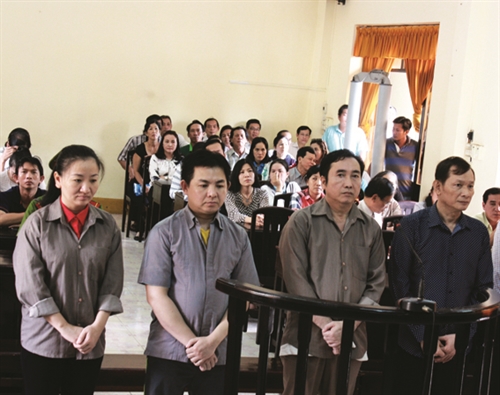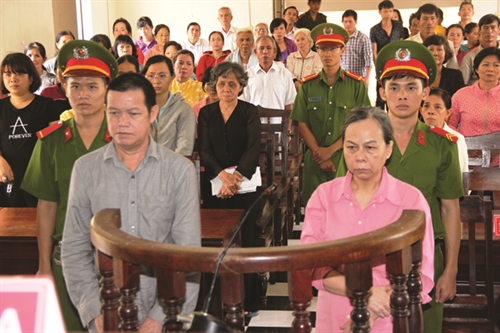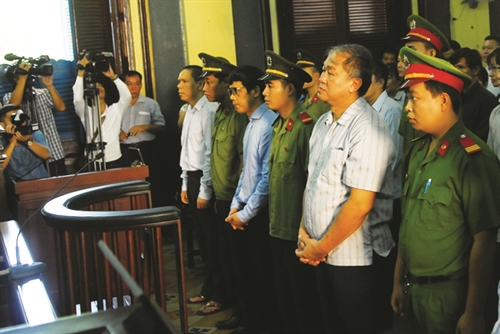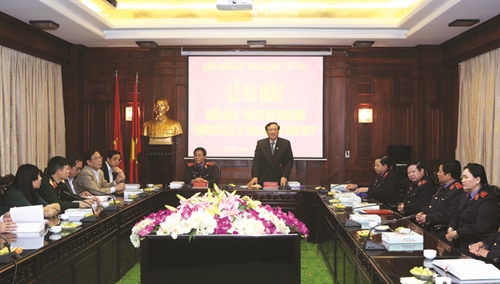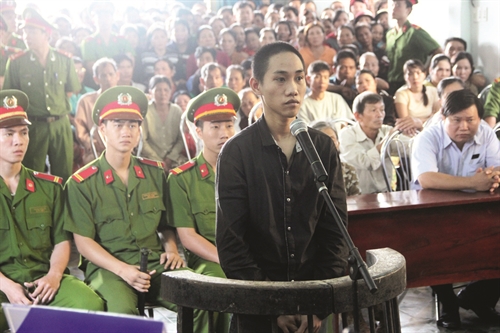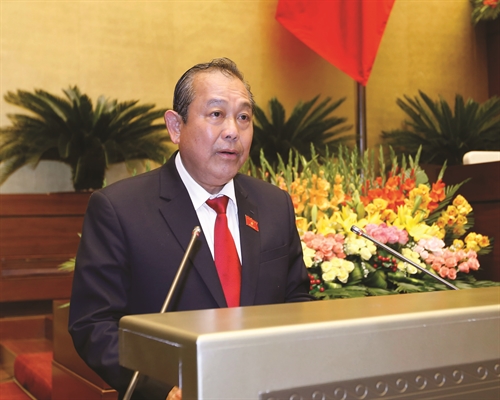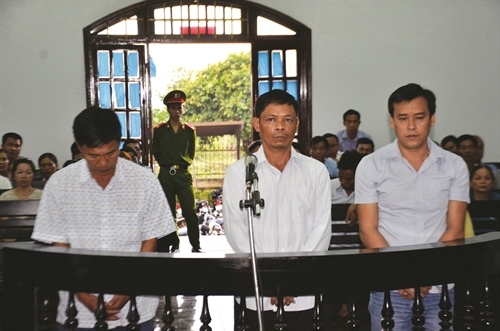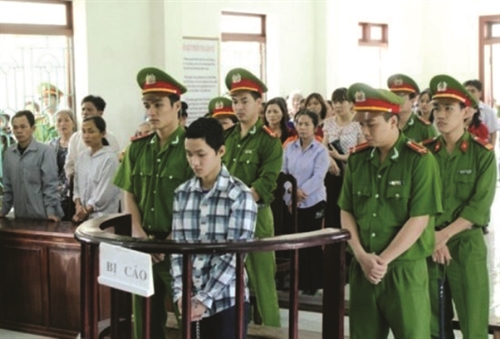Nguyen Thi Thuan, LL.D
International Law Faculty
Hanoi Law University
The territorial effect of the 2015 Penal Code (the Code), like the 1999 version, is provided in Articles 5 and 6. However, compared to its 1999 predecessor, these articles hold some new points as shown in the table below:
| Provisions | The 1999 Penal Code | The 2015 Penal Code |
| Clause 1, Article 5 | Does not apply to criminal acts/consequences of criminal acts committed on board aircraft or seagoing ships bearing the Vietnamese nationality | Does apply |
| Clause 2, Article 5: For foreign offenders who are entitled to privileges and immunities | Penal liability of these persons shall be settled through diplomatic channel | Penal liability of these persons shall be settled under relevant treaties or international practices. In case no relevant treaty or international practice is in place, their penal liability shall be settled through diplomatic channel |
| Clause 1, Article 6 | Does not prescribe penal liability of Vietnamese commercial legal persons that commit crimes outside the territory of Vietnam | Does prescribe |
| Clause 2, Article 6 | Does not prescribe penal liability of foreign commercial legal persons that commit crimes outside the territory of Vietnam | Does prescribe |
| Article 6 | Has two clauses specifying cases where Vietnamese citizens/stateless persons that permanently reside in Vietnam and foreigners that commit crimes outside the territory of Vietnam are examined for penal liability | Adds a third clause specifying criminal acts/consequences of criminal acts committed on board seagoing ships or aircraft not bearing the Vietnamese nationality and being at the high seas or in the air space outside the territory of Vietnam |
In order to determine the criminal jurisdiction over criminal offenses,[1] international law in general and the International Criminal Law in particular establish several principles, such as the nationality principle,[2] territoriality principle, national security principle, and universal (jurisdiction) principle. These principles are placed at different levels in domestic criminal laws as well as bilateral and multilateral treaties, such as the 1982 UN Convention on the Law of the Sea (UNCLOS), the 1963 Tokyo Convention on Offenses and Certain Other Acts Committed on Board Aircraft,[3] and the 1971 Montreal Convention for the Suppression of Unlawful Acts against the Safety of Civil Aviation.[4] However, when exercising criminal jurisdiction, a national criminal court can only apply its domestic criminal law.[5]
Comparing these provisions of international criminal law with Articles 5 and 6 of Vietnam’s Penal Code, we can see that:
Firstly, the Code (Clause 1, Article 5) applies the territoriality principle in a thorough manner to criminal acts committed in the territory of Vietnam. The question here is that the application of such principle should take into consideration the relevant provisions of the above-said treaties, especially the UNCLOS. The national criminal jurisdiction in the territorial seas of coastal states has particular features. More specifically, with regard to criminal acts committed on board foreign ships passing the territorial sea of a coastal state, “the criminal jurisdiction of the coastal state should not be exercised…”, save only in the following cases: “if the consequences of the crime extend to the coastal state; if the crime is of a kind to disturb the peace of the country or the good order of the territorial sea; if the assistance of the local authorities has been requested by the master of the ship or by a diplomatic agent or consular officer of the flag state; or if such measures are necessary for the suppression of illicit traffic in narcotic drugs or psychotropic substances.”[6] A criminal act committed on board a ship basically falls under the jurisdiction of the ship flag state (the ship flag principle). A coastal state may only exercise the criminal jurisdiction in the cases specified at Points a thru d, Clause 1, Article 27 of the UNCLOS, which has been designed to limit the intervention by coastal states with vessels in innocent passage through their territorial seas. A coastal state cannot invoke the exercise of its jurisdiction over a case of criminal violation committed on board a foreign ship as an excuse to obstruct the innocent passage of such ship. However, the consideration of whether consequences of a crime “extend to the coastal state” or “the crime is of a kind to disturb the peace of the country or the good order of the territorial sea” depends on the powers and regulations of the law of the coastal state.[7]
Secondly, the second paragraph, Clause 1, Article 5 of the Code stipulates: “…or in the exclusive economic zone or continental shelf of Vietnam.” Under the UNCLOS, the farther a sea area is off the coast, the more the jurisdiction of the coastal state is limited. Even in the territorial sea, the criminal jurisdiction of a coastal state may only be exercised in some specific cases. On principle, a coastal state may exercise its jurisdiction (including criminal jurisdiction) over acts infringing upon its sovereign rights committed in its exclusive economic zone or continental shelf.[8] The 2012 Law of the Sea of Vietnam, built in accordance with the UNCLOS, also prohibits a number of activities in the country’s exclusive economic zone and continental shelf.[9] As a result, not any criminal act or consequence of a criminal act committed on board a foreign ship in Vietnam’s exclusive economic zone or continental shelf is subject to the application of the Code under Clause 1 of Article 5. Hence, the second paragraph, Clause 1, Article 5 of the Code, should be added with the word “possibly” to be more inclusive.
Thirdly, Clause 2, Article 5 of the Code mentions only foreigners entitled to diplomatic or consular immunities. However, as provided by international law, foreigners who are public employees working in representative agencies of international organizations may enjoy the privileges and immunities provided in the international conventions on establishment and operation of these international organizations and in treaties signed between these international organizations and countries where these organizations base their headquarters.[10] Having incorporated the relevant provisions of international conventions and treaties into its domestic law, Vietnam also promulgated in 1993 the Ordinance on Diplomatic Privileges and Immunities, Consular Privileges and Immunities and Privileges and Immunities for Agencies and Employees of International Organizations in Vietnam. Besides, under the international law on diplomatic and consular affairs, the legal status of these persons is always provided in a uniform manner in terms of their privileges and immunities. So, the addition of the term “privileges” next to “immunities” in Clause 2, Article 5 of the Code should be considered.
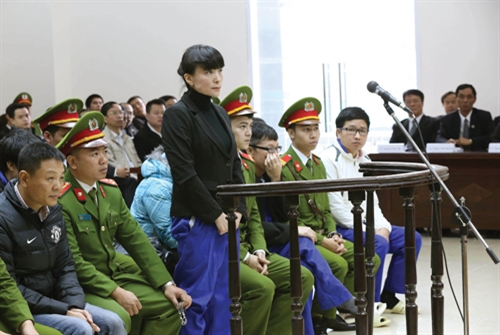 |
| Defendant Pham Thi Bich Luong, former director of Agribank’s Southern Hanoi Branch, at the hearing for her violation of regulations on lending and abuse of powers while performing public duties __Photo: Doan Tan/VNA |
Fourth, for criminal acts committed outside the territory of Vietnam, the Code applies the nationality principle (Clause 1, Article 6)[11], national security principle (Clause 2, Article 6), and universal jurisdiction principle (Clause 3, Article 6). Judging from the aspect of law-making technique as well as the relationship with relevant provisions of anti-crime treaties, the use of the phrase “may be examined (for penal liability)…” in Article 6 of the Code is quite correct. For the reason that criminal acts/consequences of criminal acts are committed or occur outside the territory of Vietnam, any foreign country may also exercise the criminal jurisdiction over such acts according to the territoriality principle, universal jurisdiction principle or nationality principle. For those cases, the provisions on the effect of the Code not only recognize the ground for determining the scope of application of the Code but also affirm the Vietnamese State’s criminal jurisdiction over Vietnamese citizens regardless of their places of residence as well as over foreigners who commit acts infringing upon interests of Vietnamese citizens and the Vietnamese State even if such acts take place in foreign countries.[12] Even if the Code does not provide such jurisdiction, Vietnam can still exercise the criminal jurisdiction over, and apply the Code to, criminal acts if relevant treaties to which Vietnam is a contracting party so provide. With these provisions, the Code facilitates the application of the universal jurisdiction principle. In international practice as well as criminal laws of many countries, this principle is usually applied to such international crimes as genocide, aggression or piracy.[13]
From the above analyses, we can see that Vietnam’s provisions on territorial effect of the Penal Code have evolved to more align with the international law in general and international criminal law in particular. However, the Code still has no provision that a treaty to which Vietnam is a contracting party prevails if its provisions are different from those of a domestic law on the same field. Such provision can be found in many basic laws, such as the Civil Code, Law on Citizenship, Commercial Law, and Maritime Code. As criminal justice is a public legal domain, there can never be a conflict of law in the criminal justice although a conflict of criminal jurisdiction may arise. This is why the provisions of Articles 5 and 6 of the Code on territorial effect should be revised before the Code takes effect in order to ensure its conformity with treaties to which Vietnam is a contracting party.
Moreover, when ratifying or acceding to some multilateral treaties, Vietnam has reserved some provisions relating to its criminal law, such as Article 26 on penal liability of legal persons in the 2003 UN Convention against Corruption. Therefore, those reservations relevant to the Penal Code should also be reconsidered.-
